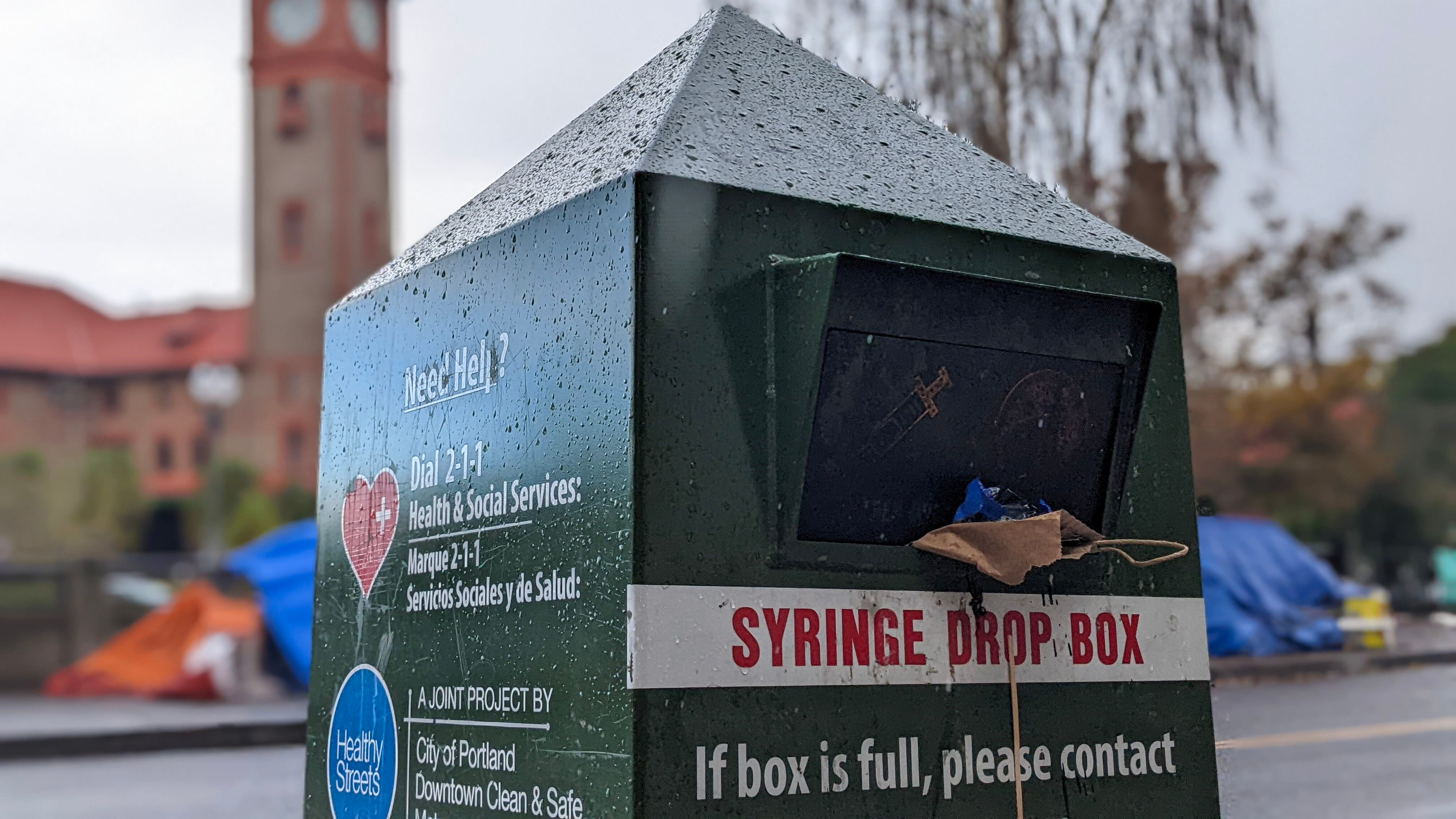The distribution of $270 million in new funding for Oregonians suffering from substance abuse disorder was supposed to begin in early January. But the money is still sitting in state coffers and probably won’t begin to flow until June.
That’s the takeaway from a contentious April 8 meeting of the Oversight and Accountability Council for Measure 110. Members of the 20-member council, most of whom are people with lived addiction experiences or who work for treatment providers, expressed frustration with the difficulty in getting money out the door.
“We are in chaos right now,” Caroline Martinez Cruz, health and human services manager for the Confederated Tribes of Warm Springs, said at one point during the meeting.
At issue is Measure 110, the 2020 ballot initiative that voters approved to shift the way Oregon deals with hard drugs and those who abuse them. The measure decriminalized the personal use (but not the dealing of) many hard drugs, including cocaine, heroin and methamphetamine. It also provided a new, large source of revenue for the state’s chronically underfunded treatment industry by redirecting revenue from the recreational cannabis tax from counties and K-12 education to treatment.
Last year, the Oregon Health Authority, which is charged with administering Measure 110, distributed $33 million in preliminary grants to treatment providers to allow them to get started. In November, the agency issued a request for proposals for funding for the 2021-23 biennium totaling $270 million. In that request, OHA said it planned to make grant awards Jan. 10.
That date has come and gone—as has Feb. 21, the one-year anniversary of decriminalization. Meanwhile, as WW reported earlier this year, drug overdose deaths are soaring.
The holdup: paperwork.
OHA received 333 grant applications. About half of the proposed programs are in the metro area and about half in the rest of Oregon. Under the process OHA established, each of those 333 applications must be rated using a rubric that includes more than 300 questions, then sent to the Oversight and Accountability Council for approval. That’s all taking much longer than expected.
On Friday, the council voted to form two subcommittees to speed up the approval process, but OHA officials reported there were still many applications that haven’t been scored yet. A timeline the agency shared projects the money won’t start flowing until June, likely to treatment providers in small, rural counties first.
In response to criticism of his agency from council members, OHA behavioral health director Steve Allen, who sits on the council, says his staff will do a better job of supporting the council in the future. “I hold myself accountable,” Allen said.
Tera Hurst, executive director of the Health Justice Recovery Alliance, which advocates for treatment providers, says Allen’s agency dropped the ball.
“At a time when Oregon ranks dead last in the nation in accessing critical addiction recovery services, OHA’s bureaucratic slowdowns and lack of support to the Oversight and Accountability Council are disgraceful,” Hurst says.
“OHA has more than 4,000 employees and is a well-resourced, multibillion-dollar agency,” Hurst says. “The Legislature awarded them millions of dollars to hire staff to work solely on Measure 110. Why the delay? Clearly, funds for Measure 110 services have not been prioritized, despite the fact that people are dying every day.”
